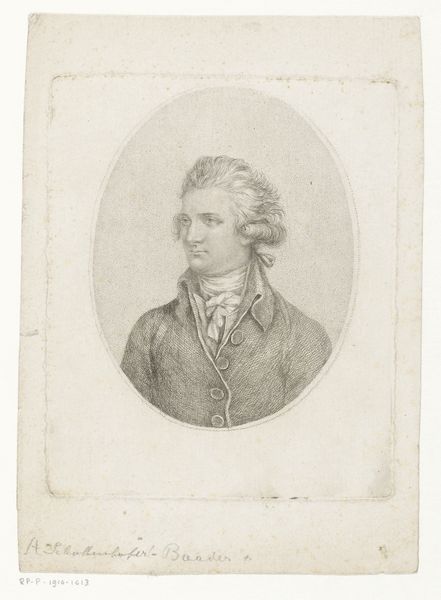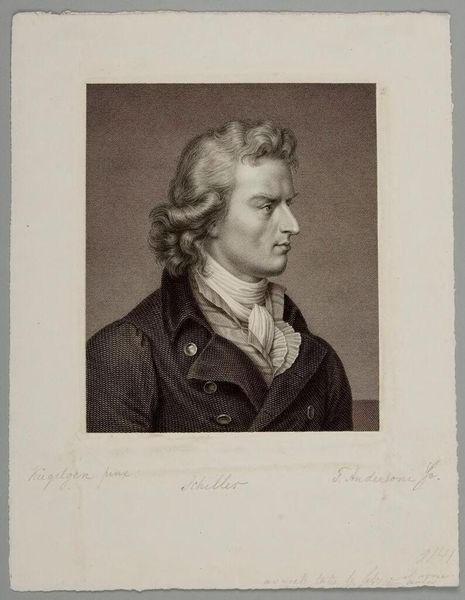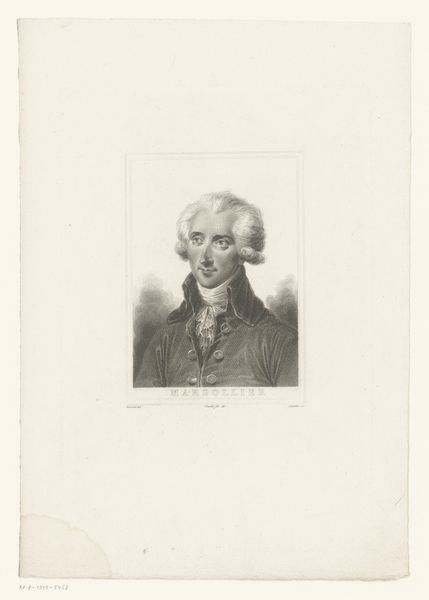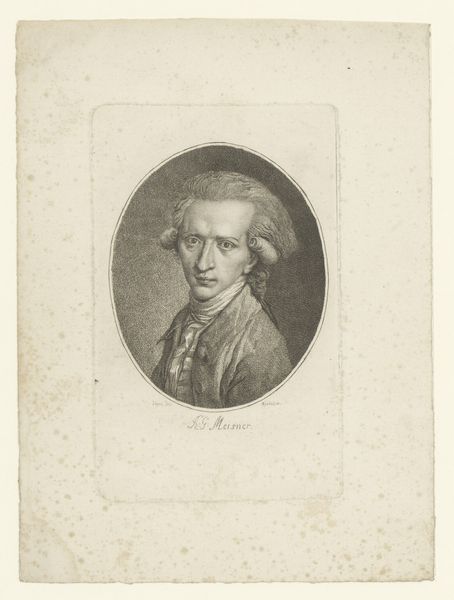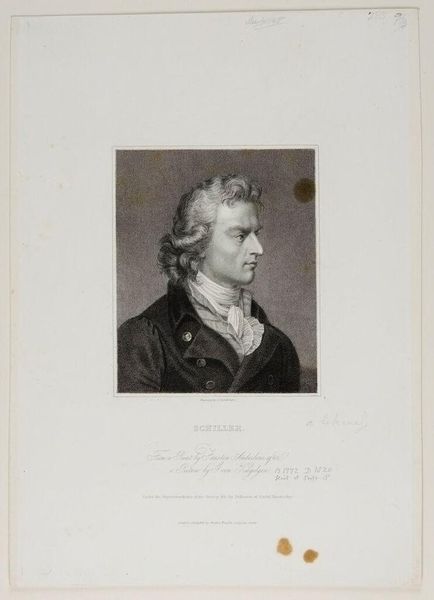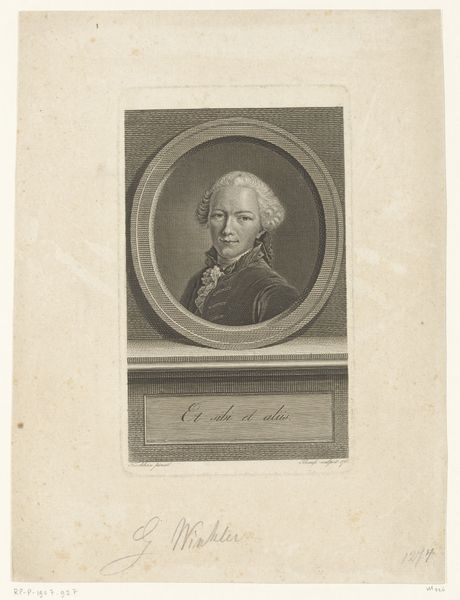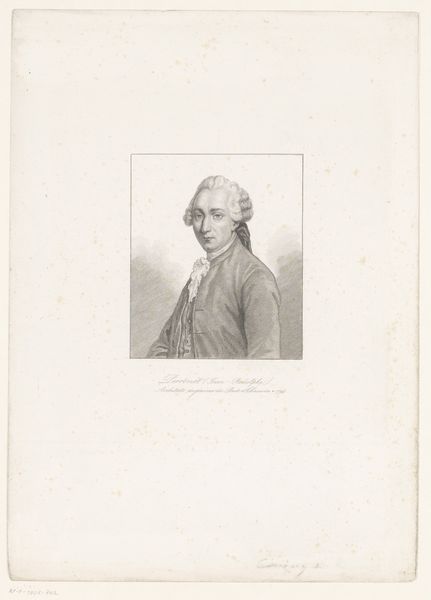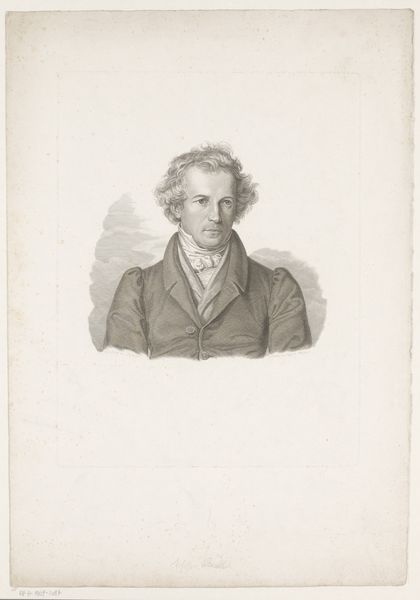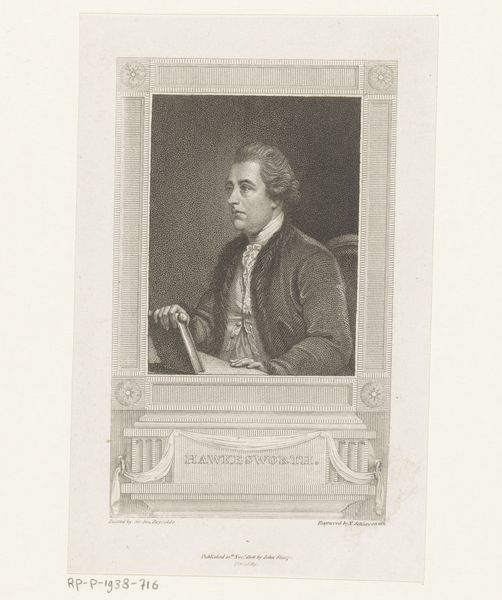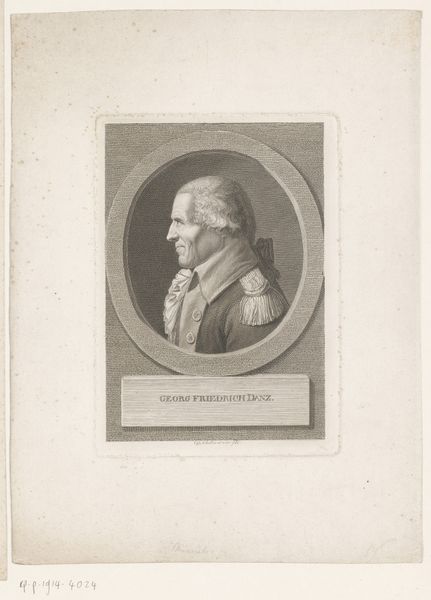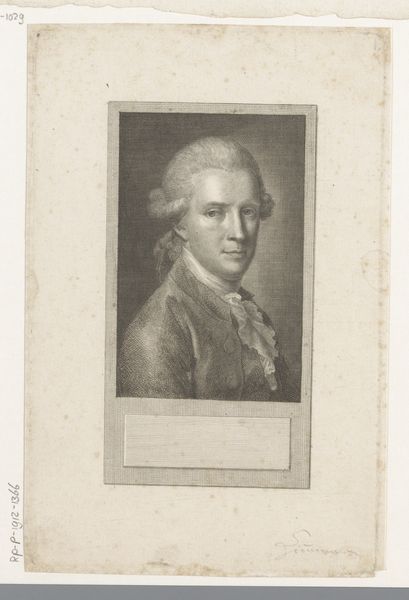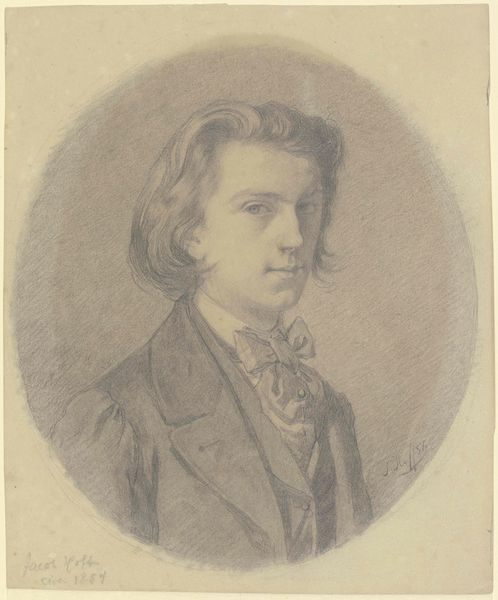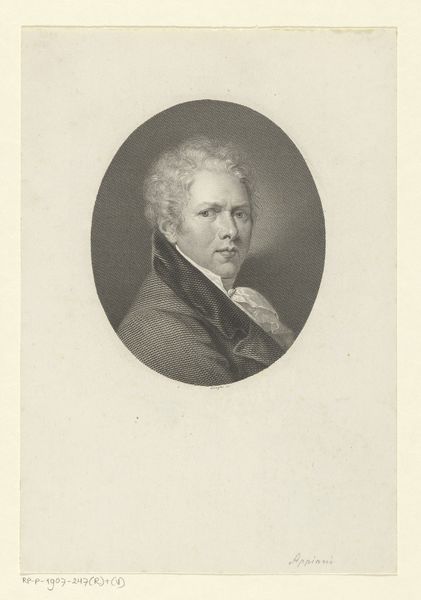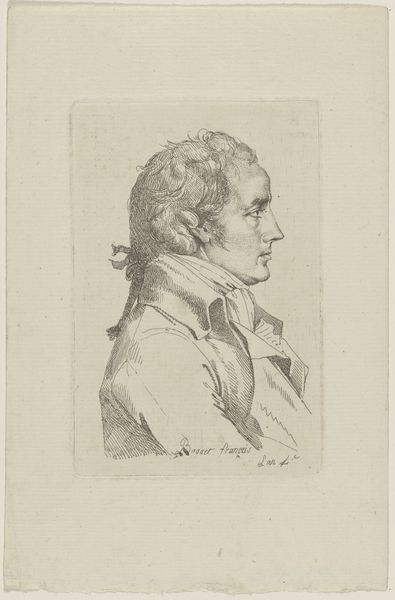
engraving
#
portrait
#
neoclacissism
#
old engraving style
#
historical photography
#
portrait reference
#
history-painting
#
engraving
#
realism
Dimensions: height 270 mm, width 213 mm
Copyright: Rijks Museum: Open Domain
Editor: Here we have a piece titled "Portret van Friedrich von Schiller," an engraving from sometime between 1808 and 1861 by Heinrich Lödel. The sharp lines give it a severe feel, almost neoclassical in its rigidity. How do you approach a work like this, with its overt classicism? Curator: Precisely that severity, achieved through masterful manipulation of line, establishes the aesthetic power here. Notice the tight control Lödel exercises, using hatching and cross-hatching not to describe volume but to construct it as an intellectual concept. This is less about mimetic representation and more about idealised form. Editor: So, it's more about the *idea* of Schiller than the *likeness* of him? Curator: In essence, yes. Observe the stark contrast between the controlled lines of the face and coat, versus the more expressive, almost romantic treatment of the hair. That juxtaposition isn’t accidental. The very materiality of the engraving serves to mediate reality, presenting it filtered through a lens of controlled aesthetic principles. Are you perceiving a structural dialogue between idealisation and naturalism? Editor: I think I see that push and pull now - a very conscious and formal decision in the rendering. It also really highlights the romantic-era tension between the classical and newer aesthetic values. Curator: Precisely. And within that tension lies its aesthetic strength. Editor: Thanks. That’s given me a new perspective on how much an engraver can reveal through purely formal choices.
Comments
No comments
Be the first to comment and join the conversation on the ultimate creative platform.
